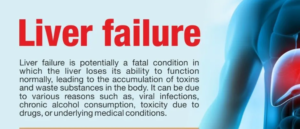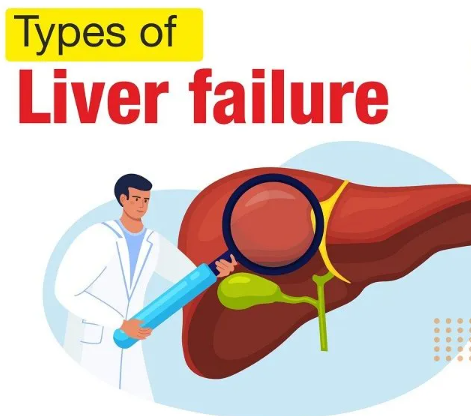Early Symptoms of Liver Disease to Watch For
There is no doubt that the liver is one the most important organs in the human body, whose functions range from metabolism to detoxification, as well as synthesizing several proteins that are vital to the body. Sadly, liver disease is on the increase across the world and is often asymptomatic until its advanced stages. Therefore, it is important to learn the early signs of liver problems so that the situation can be better managed. This review takes a closer look at the initial signs to look out for, their significance, and above all, how the liver can be kept in good health.
The initial stage of this disease’s progress is referred to as surface-level early symptoms of liver disease to watch for displaying certain attributes like.

Symptom 1- the chronic disease is fatigue and weakness
Continuous tiredness is one of the earliest signs that your liver is not working as it should. When the liver is ineffective in breaking down toxins and energy production, exhaustion levels may be high for the affected individual. Tiredness is also common in advanced cases that can hinder an individual’s everyday life.
2. Jaundice
One of the typical signs of disease of the liver can be the yellowish tint of the skin and sclerae of the eyes. This is a phenomenon that can occur if there is an overload of bilirubin in the blood which the liver is unable to filter properly. The presence of jaundice can be an alarming sign of deposition of certain colored pigments in the cells of the liver and must be checked immediately.
3. Abdominal Pain and Abdominal Swelling
Pain or discomfort in the upper right side of the abdomen i.e. the region of the liver is of particular concern. Moreover, liver problems that are chronic in nature may also have manifestations in the form of the accumulation of spills in fluid in the abdominal cavity which is referred to as ascites.
4. Changes in Appetite and Weight Loss
A loss of appetite is observed in patients which can lead them to lose weight unintentionally. This might be due to the fact that the metabolism is affected because of damage to the liver, or there may be other gastrointestinal problems that are related to liver disease.
5. Nausea and Vomiting
It is possible for chronic nausea or vomiting to develop, owing to the deteriorating function of the liver in regard to food and toxic metabolism, which is common in advanced stages of liver disease. It may further worsen the weight loss and malnutrition.
6. Dark Urine and Pale Stools
The liver can also be indicated by changes in the color of these bodily fluids. Dark or brown colored urine may be suggestive of excessive bilirubin, while clay colored stools indicate deficiency in conjugated bile salts which may be due to liver disease.
Specialty of Early Symptoms of Liver Disease to Watch For
Such knowledge may allow them to differentiate early liver disease symptoms from other medical conditions. For instance:
- Variability: Symptoms fatigue and jaundice are not specific and may be due to other diseases. They should always consider the bigger picture such as lifestyle and family history.
- Age Factor: The elderly may develop more subtle symptoms than the young, thus making awareness important across the lifespan.
- Gender Differences: Men and women may have the same symptom but with regards to different severities due to their hormonal differences and lifestyle.
- It is important to note these specialties because these may help individuals make better choices regarding their health and seek medical attention as needed.
Uses of Early Symptoms of Liver Disease to Watch For
The knowledge of early symptoms is helpful in many ways.
Early Diagnosis: Knowledge leads to early diagnosis which results in the effectiveness of some treatments and the ability to reverse liver damage at early stages.
Proactive Management: It is possible to manage the symptoms early and modify certain risk factors that manage to have an effect on liver wellbeing such as alcohol and diet.
Enhanced Communication with Healthcare Providers: Considering the symptoms enables the patients to explain better to the healthcare providers which tests and interventions would be required.
Main Theme of Early Symptoms of Liver Disease to Watch For
The main point in learning early signs of liver disease seeks to emphasize prevention with wisdom. Understanding the signs empowers people to take action at the most relevant point regarding their health. This perspective emphasizes the need for education and periodic health checks which are more important in individuals who are more susceptible to liver disorders.
By shifting towards the mode of expanding the screen of prospects, and barriers connected with advanced liver disease can be addressed greatly. Further, also sustaining an elegant lifestyle can reduce the risk of having liver problems and enhance the general health.
Pros and Cons of Early Symptoms of Liver Disease to Watch For
Pros Cons
Early detection: Allow early intervention and treatment as appropriate. Misinterpretation: There could be harsher symptoms that could disguise those issues which are underlying.
Better outcomes: The chances of reversing damage are high, if diagnosed in the early stage. Anxiety: There may be trouble during anxiety due to the awareness of having liver-related problems.
Informed decisions: This prevents you from making poor health decisions. Stigma: Stigma which emanates from people suffering diabetes, which is indeed liver disease, is all but minimal.
Preventive measures: Makes one even more proactive to make lifestyle changes. Access to care: Medical advice and care may not be available to all the people in equal proportions.
Conclusion: Early Symptoms of Liver Disease to Watch For
In understanding liver health, recognizing chronic liver disease or delaying further damage to the liver is by looking out for the early symptoms, and preventing those chronic liver diseases to get worse. Sore muscles and tiredness, jaundice, pain in abdomen and loss or increase in appetite are some of the symptoms as well. What is clear, however, is that the early identification of the problems leads to better management and treatment if the disease is reversible, hinting at raising awareness regarding the state of well-being and health of the person in question.
Understanding the signs and maintaining an active lifestyle are keys to managing liver health. However health care professionals must also be active in management of the disease. Certain things such as regular check-ups must be implemented throughout the course as this is extremely important to manage conditions such as liver diseases.
FAQs: Early Symptoms of Liver Disease to Watch For.
Q.1 What are the most common early symptoms of liver disease?
The symptoms that can be noted in the early stages includes uncomfortable fatigue, jaundice, pain in the abdomen, reduced or increased appetite, feelings of nausea and dark looking urine.
Q.2 How can I prevent liver disease?
Life Style changes such as consuming a healthy diet, making sacrifices to include physical activity that is accompanied with proper nutrition, and consuming alcohol in moderation and treating additional risk factors inclusive of diabetes are effective as well.
Q.3 When do I have to see a doctor regarding pale stool and any abdominal pain that could point to chronic liver disease?
It is within reason to visit a doctor when one has fatigue that does not go away after prolonged rest, jaundice, or pain in abdominal area for days, better yet, for weeks.
4. Is it true that if liver disease is treated at an early stage, its progression can be halted?
Yes, in certain circumstances, liver disease at early stages is treatable with lifestyle changes and medication, particularly in places like fatty liver disease.
5. Are there specific dietary changes that promote liver function as well as health?
Regular exercise and a routine that lacks toxins, along with a healthy diet filled with fruits, vegetables, and whole grains can do wonders to one’s liver.
